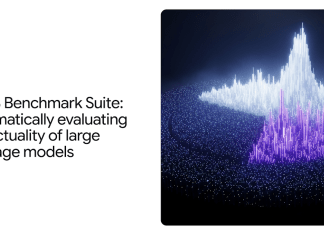How AI is re -defining the music industry
Ai changed the game in many industries, but one of the areas in which its impact is getting deeper is the music industry. From helping artists in creating new sounds to revolutionizing how we discover and consume music, and transforms almost every aspect of the musical world. As someone deeply interested in both technology and music, I consider it extremely exciting how to discover how AI music generators Other AI tools affect artists, producers and even listeners like me.
In this article I will immerse myself in transformational ways in which AI redefines music production, composition, marketing and distribution. We will examine everything from the best tools of artificial intelligence music generator to ethical implications of the role of AI in the industry. So much is happening now, and the future of music can look completely different than we imagine.
The creation of artificial intelligence in music
Ai gradually infiltrated the music industry, moving from ordinary curiosity to the basic element of its evolution. When you think about the role of AI in music, you can first imagine streaming services for music recommending songs. But his influence goes far beyond it.
AI in music began with the basic algorithms used for such things as playback treatment. Over time, more advanced applications began to appear. AI music generators Now I have moved things to a completely new level, capable of creating music that imitates the style of recognized artists, creating original compositions, and even automatically mastering songs.
It is fascinating how quickly AI progresses. Machine learning, deep learning and neural networks played a key role in the development of AI powered music tools. For example, platforms such as Amper Music and Jukedeck were one of the first to experiment with AI generated compositions. These systems were able to create basic musical works based on the user's input. Today we see highly sophisticated software based on artificial intelligence, which can compose whole songs of various genres and complexities.
And in creating and composition of music
When we think about the most exciting AI influence on music, the music itself stands out. One of the deepest innovations in this space is growth AI music generators. These tools allow everyone from experienced composers to amateur musicians, create original compositions with a small or any previous musical training.
Let's divide it into several key areas:
- Music generated by AI: Platforms such as Musenenet OpenAI, Google's Magenta and Aiva can compose original elements based on the initial prompt. Algorithms are trained in the field of extensive music libraries in various genres, which they use to generate new compositions.
- Common composition of AI: AI does not replace human musicians – it increases creativity. Artists now have a powerful tool to experiment with new sounds, melodies and structures. For example, musicians can use artificial intelligence to create basic songs or invent melodies that they didn't think about themselves.
- Case studies: In 2020, the Yacht band released an album completely created from AI tools. The album “The XX century” was composed, produced and even written using artificial intelligence. Although this is an extreme example, it shows how AI can be used to create full -scale music, not just small fragments.
And also brings innovations writing songs. AI tools can suggest texts, generate chord progress, and even create beats based on tone and mood desired by the artist. It is not about replacing human creativity; It is about facilitating the creative process.
AI in musical production
The role of AI in musical production goes beyond the composition. The production process, including mixing, mastering and sound engineering, is revolutionized by AI tools that automatize tasks traditionally demanding human touch.
Here are some key areas of AI affect the production of music:
- Audio engineering with AI: AI -based tools, such as Landr, produce waves in the music production community. These platforms can automatically mix and master the track, ensuring that they are ready for distribution without the need for professional engineers.
- Automation: AI can help producers create impacts, sounds and loops without a manual contribution, saving time in the production process. For example, AI music generators can take a difficult idea and improve it into a refined song.
- Performance and precision: One of the greatest benefits of AI to production is the ability to analyze and adapt sound with precision. AI can analyze frequencies, remove unwanted noise and adapt dynamics in real time, increasing the efficiency of the entire production process.
Personalization of artificial intelligence and music
Personalization is one of the biggest AI in the music industry. From the creation of non -standard playback lists to discovering new artists, AI transforms the way listeners experience music.
Here's how it works:
- Musical recommendations systems: Services such as Spotify, Apple Music and YouTube use artificial intelligence to recommend songs based on their listening habits. These platforms analyze data from previous listeners to suggest new songs that are in line with your tastes.
- Data -based observations: AI also helps artists and producers better understand their recipients. By analyzing streaming data and users' behavior, artificial intelligence can help developers direct the right group of recipients and improve their music to meet the preferences of listeners.
- Global range: Personalized musical recommendations make it easier for listeners around the world to discover new genres and artists that they could never find differently. AI algorithms can break down language barriers, suggesting similar music from different cultures.
AI and distribution of music
After producing the path, it should be distributed to the right audience. AI helps to improve this process by automating many aspects of music distribution, thanks to which it is more accessible to independent artists.
Here's how he shakes:
- AI for music marketing: AI -based tools are used to predict trends and optimize promotional strategies. By analyzing data, artificial intelligence can identify the appropriate audience and recommend the best times and platforms to publish new music.
- Automated distribution: Some platforms allow independent artists to automatically distribute their music to various stream services and platforms. These AI tools eliminate the need for intermediaries, which gives creators more control over their music.
- Global availability: AI is a democratizing distribution of music. Independent artists, regardless of the location, can access the same global market as the main artists. Using distribution tools powered by artificial intelligence, even a bedroom manufacturer can make his global audience.
Ethical and legal challenges of artificial intelligence in music
Because AI still plays a greater role in music, it raises significant ethical and legal fears that should be solved.
- Copyright problems: Who owns the music created by AI? This is one of the most smoking legal questions about the music generated by AI. The lack of clear copyright provisions for works created by AI causes confusion about ownership, license fees and rights.
- Bias in AI: AI algorithms are as good as the data on which they are trained. If the data is biased, the music generated by AI may reflect these prejudices. For example, artificial intelligence trained mainly in the field of Western pop music may have difficulty creating various or culturally rich compositions.
- Influence on jobs: Many musicians and producers are afraid that the growing dependence on AI can lead to loss of work. Will AI replace producers, composers or sound engineers? While AI will probably automate some tasks, human touch and creativity are irreplaceable in the music world.
- Regulation: Various governments and organizations are working on establishing guidelines and regulations regarding the use of artificial intelligence in music. As the technology evolutions, legislators are necessary to create a framework that protects the rights of artists while taking innovation.
The future of artificial intelligence in the music industry
Looking to the future, the future of artificial intelligence in music is full.
- AI and the evolution of music: When AI is still improving, we can expect an even greater breakthrough development of composition and musical production. Lines between creativity between man and machines are blurred, which leads to new forms of musical expression.
- Virtual concerts and live performances: AI can be the key to creating engaging, interactive live performances, especially in combination with technologies such as virtual reality. Imagine that avatars generated by AI next to human artists at virtual concerts, creating a unique experience for the public around the world.
- Innovative technologies: There will probably also be even more platforms driven by AI. From interactive music videos to a personalized concert experience, AI will continue to improve the way we experience music in the digital era.
Application
AI has already begun to transform the music industry, and its impact is to develop. Or through The best AI music generator Tools that help create music without license with artificial intelligence or automation of production and distribution tasks, and transforms the way of creating, producing and consuming music.
Although certainly above all there are challenges – such as legal and ethical fears – the potential of AI to revolutionize the music industry is undeniable. It will be exciting to see how AI still cooperates with human creativity to create a completely new world of music, and I can't wait to see where this journey leads us.


















